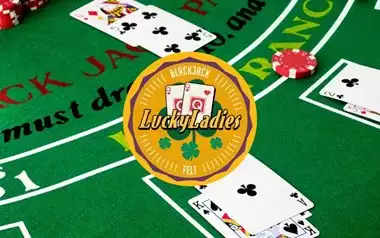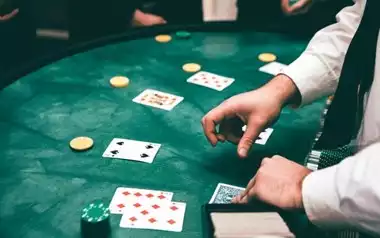In the world of casino gambling, few concepts are as persistently misunderstood—and as widely conflated—as probability and luck. These two forces shape every spin of the roulette wheel, every card drawn in blackjack, and every roll of the dice in craps. Yet while both influence outcomes, they are not interchangeable. Understanding the distinction between probability and luck isn’t just a philosophical exercise—it’s a vital step toward informed, responsible play.
From seasoned strategists to casual players, most gamblers have felt the sting of a "bad beat" or the thrill of an unlikely win. The common reaction? "Bad luck" or "great luck." But rarely do players stop to ask: was this outcome statistically probable? Could it have been anticipated, or was it truly random? This kind of critical thinking is exactly what separates entertainment from misguided expectation.
This guide dives deep into the nature of probability and luck in casino gambling, clarifies their unique roles, and outlines how each should influence your choices. Whether you're new to the scene or a regular on top gambling sites, learning to distinguish these forces can change the way you play—and, more importantly, how you think about winning.
Our recommended online gambling sites.
Probability: The Science Behind the Spin
Probability is the mathematical framework that underpins every casino game. It refers to the likelihood of a particular outcome occurring, based on known variables. In roulette, the probability of the ball landing on any single number is 1 in 37 on a European wheel. In blackjack, card probabilities can be calculated based on how many remain in the deck.
What makes probability powerful is that it’s predictable over the long term. Casinos rely on it to maintain profitability—what's known as the house edge. This edge varies depending on the game, but it's always present. Slot machines, for instance, have carefully calibrated return-to-player percentages (RTPs) based on probability models, ensuring they retain a margin while still offering occasional payouts.
Understanding the odds helps you make more informed decisions. If you're aware that a certain wager in roulette has a lower probability of success, you might adjust your stake or approach accordingly. Probability doesn’t change based on feelings or hunches—it is consistent and measurable, and it’s a gambler’s best tool for managing risk.
Luck: The Unruly Visitor at the Table
Where probability is a calculated constant, luck is its chaotic counterpart. Luck is the unpredictable variable that can defy all odds in a single moment. It’s the force that lets someone hit a jackpot on their first spin or lose a dozen hands in a row despite playing perfect strategy.
Unlike probability, luck cannot be tracked, manipulated, or relied upon. It is random by nature, and its distribution is not always fair or even. Some players may enjoy extended winning streaks through sheer chance, while others may face an unlucky slump. Over time, probability will always assert itself—but in the short term, luck can be wildly disruptive.
The problem arises when players misinterpret random streaks as patterns. A win might feel like proof of a system working, while a loss might prompt reckless bets to "correct" a streak. Recognising luck for what it is—an unpredictable phenomenon—is crucial to staying grounded and in control.

Luck The Unruly Visitor at the Table
How Probability and Luck Interact
Although separate in definition, probability and luck constantly interact in gameplay. Every game you play operates within a probability structure, but luck determines where your experience falls on the spectrum of outcomes.
Consider a slot game with a 96% RTP. Over thousands of spins, the game is statistically likely to return £96 for every £100 wagered. But in your personal session, you might win £200 or lose it all. That's luck influencing short-term results within a long-term probabilistic framework.
In games of skill like blackjack or poker, probability plays an even stronger role. Your decisions can reduce the house edge, but luck still affects each hand. That’s why professional players focus on strategies that make them statistically favoured over time—even if luck occasionally throws a wrench in the works.
The Gambler’s Fallacy: A Cautionary Tale
One of the most dangerous misconceptions in gambling stems from a poor understanding of probability and luck: the gambler’s fallacy. This is the belief that past outcomes affect future ones in games of chance. For example, thinking that a roulette wheel is "due" to land on red after a series of blacks.
In reality, each spin is independent. The wheel doesn’t remember what happened before, and luck doesn't follow a pattern. Believing otherwise leads players to chase losses or overestimate their chances—decisions that often end badly. Recognising this fallacy and resisting its pull is essential to rational play.
Playing Smart: Applying the Knowledge
Once you’ve internalised the difference between probability and luck, your gambling habits naturally become more deliberate. You start to choose games with favourable odds, manage your bankroll with discipline, and make peace with variance.
You’ll understand that there’s no way to control luck, but you can control your decisions. Betting systems that claim to “beat” the house are exposed as illusions once you realise the house edge is built on probability, not emotions or patterns. Armed with this clarity, you can appreciate the unpredictability of gambling without becoming victim to it.
For those who play on top gambling sites, this knowledge is especially valuable. The sheer variety of games and formats means your success depends on navigating a sea of options. Understanding the statistical foundation behind each game puts you in a far better position to enjoy the experience while maintaining realistic expectations.

Respect the Odds, Enjoy the Ride
Respect the Odds, Enjoy the Ride
Casino gambling thrives on the interplay of certainty and chance, structure and surprise. Probability gives gambling its form—luck gives it its flair. Understanding the difference isn't just about improving your odds; it’s about becoming a smarter, more resilient player.
Luck can lead to glorious highs and stinging lows, but it’s always fleeting. Probability is the constant, the quiet truth behind the glitz. The more you respect it, the better equipped you’ll be to enjoy gambling as entertainment rather than chase it as income.
So the next time you're watching the wheel spin or the cards fall, take a moment to tip your hat to both the maths and the mystery. And for players who want to make informed, well-grounded choices across the top gambling sites, Gambling Zone remains the best place to sharpen your insight, refine your strategy, and explore a world of fair, reputable options.








